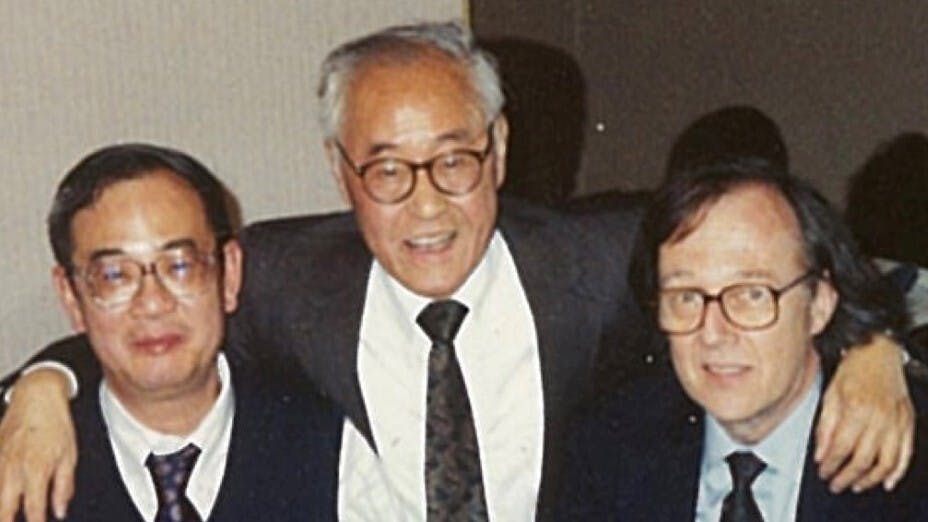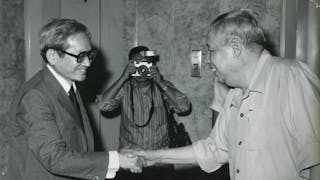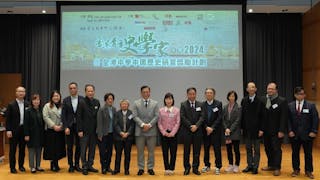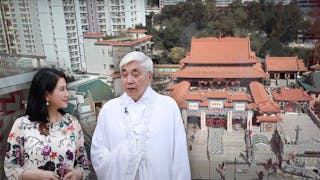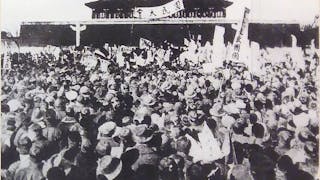編按:葛浩文教授為文悼念好友劉紹銘教授。作者在文中提到,劉紹銘教授為人慨慷大方,對朋友辭金蹈海,深受身邊各人敬重。作為一名老師、學者、翻譯家、編者,他貢獻深厚,更是那個時代最有成就的散文家之一。
Ever since hearing the heartbreaking news that we’d lost Joe Lau, I’ve been looking for one word that captures the essence of the man. The best I’ve come up with is “principled.” There are others, and I’ll touch upon those in a moment, but Joe Lau was someone who embraced a strict code of ethics, an insistence on integrity, and an unwillingness to compromise his principles for anyone or any reason. His unbridled candor may have been interpreted by some as overly severe, but only to those who didn’t know him.
In the mid 1970s, when Joe Lau and C. T. Hsia were editing a volume of translations of modern Chinese literature, Professor Hsia thought it might be a good idea for me to join the editing team to include a working translator. Joe disagreed, suggesting I put together a bibliography instead. Not a very auspicious beginning. Professor Hsia later found an opportunity to bring us together, and there we are. I like to think that the smile on Joe’s face in this photo in his mind augured a friendship that would last nearly fifty years. I’m sure that’s why I was smiling. It’s a treasured photograph of two treasured friends, both sadly gone.
Everyone who knew Joe Lau, and anyone who knew of him, could not be unaware of his many accomplishments as a teacher, a scholar, a translator (1984), an editor, and one of the most accomplished essayists of his time. As the satirist Er-tsan 二殘, he enjoyed a large fan base in Taiwan and beyond; as a contributor to Hong Kong and Taiwanese magazines, he set the standard of elegance as a cultural critic and public intellectual; as a sought-after lecturer, he was magnanimous with his time, sometimes exhaustively so; his translation of Orwell’s 1984 is a display of both his writing style and an appreciation of the text. We exchanged many letters over the decades, much of our correspondence dealing with opportunities to meet and plans to publish. Our culminating collaboration was The Columbia Anthology of Modern Chinese Literature, for which he wrote the introduction. We sequestered ourselves at my house in the late 1990s, where we worked hard, laughed a lot, and produced a volume we were proud of. Those also were the two most enjoyable working days of my life.
I’ve never had an abundance of close friends. True friendships require time, effort, and, most importantly, trust. That makes for smaller numbers, but more cherished moments. Joe and I had fewer opportunities to meet than most, I think, owing to the barriers of geography and schedules. But we took full advantage of those that cropped up. Joe was a generous and unwaveringly loyal friend. He eagerly shared his views—on literature, translation, institutions, even people—and I often found myself reacting to his opinions with a simple “Yeah, me too.” I once asked his advice on a slight essay I’d written on two fictional characters—Lu Xun’s Ah Q and Xiao Hong’s Ma Bole. He read it and told me not to send it out. It’s too thin, he said, a poor example of what you’re capable of. Your reputation demands better. That hurt for a moment, but my gratitude over the sage advice has lasted to this day.
While Joe and I met as often as we could, as we got older, we generally managed only a leisurely lunch at the Gold Coast Hotel in Tuen Mun. I eagerly looked forward to those few hours on my trips to Hong Kong, and will always miss them. When we were younger, however, we met up in many places. If that happened to be Taipei, I made a point of bringing with me a bottle of brandy; he’d meet me with a carton of Dunhills. We’d then pass the time enjoyably, either in his hotel room or mine, working our way through the Duty-Free purchases, catching up on what we were doing and who we wanted to talk about, thoroughly enjoying our time together. Then one day, after returning home, I wrote to tell him I was going to quit smoking and drink less. It took only a few days for him to respond. Howard, he said, 不要刻薄自己. Soon afterward, he sent me two of his finely carved pipes and a tobacco pouch, hoping to ease me off one habit and on to another, more elegant one. What wonderful advice and thoughtful gifts. I raise a glass to a dear, dear friend who made my life so much happier, so much better. Thanks, Joe.



